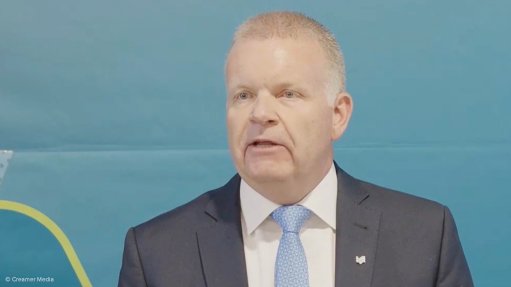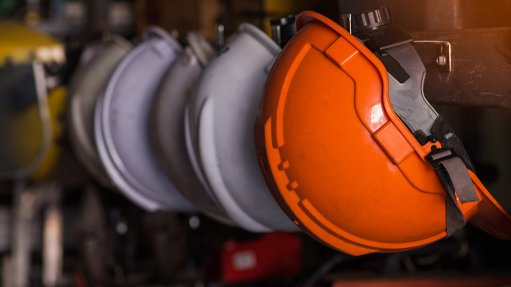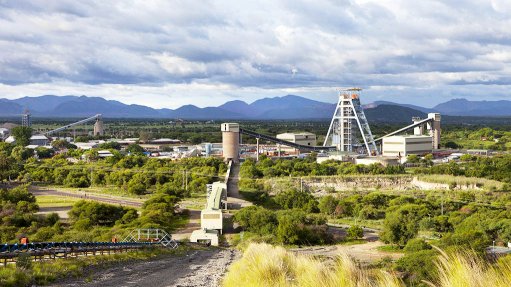Enhancing logistics through advanced, green innovations


RAJENDRA PETKAR The adoption of green fuels, intelligent fleet management services and driver-assist features will enhance the logistics industry and improve driver safety
With Africa’s logistics sector continuing to gain momentum, the adoption of modern innovations is essential to ensure that the transport and logistics sector is prepared for the future, and able to efficiently move goods across the continent’s diverse terrain.
Automotive and components manufacturer Tata Motors president and chief technology officer Rajendra Petkar, in a press release earlier this month, stated his belief that trucks ought to be powered by green fuels; intelligent fleet management services should be adopted; and companies need to install driver-assist features in light-, medium- and heavy-weight vehicles, for the logistics industry to reach a state of preparedness.
He stressed that embracing a diverse mix of green fuels is key. “Closed-loop operations involving shorter distances and lighter loads will benefit from electric trucks supported by fast-charging infrastructure. Alternatively, for long-haul journeys, hydrogen, compressed natural gas (CNG) and liquefied natural gas (LNG) are more feasible. Hydrogen fuel cells, with zero emissions and an extended range, also show promising value.”
Petkar noted that CNG is increasingly available in many regions across the continent, and distribution for LNG is progressing, as natural gases provide a more immediate alternative to diesel for specific applications. He also suggested that a multi-pronged approach, with different fuels catering to different trucking needs, could pave the way for an overall greener logistics landscape.
Tata Motors, which has stated a commitment to strengthening its sustainability goals, “consistently explores innovative clean technology solutions for commercial vehicles”, he said.
“We have been developing multiple powertrain technologies, including battery electric, CNG, Bi-fuel, LNG, fuel-cell electric, hydrogen and internal combustion engine technologies.”
Additionally, he noted that the company is working towards a modular architecture for its vehicles to quickly adapt to customised applications and fuel technology requirements.
“The African transportation industry is undergoing a rapid transformation driven by the advent of connected vehicles that harness real-time data to provide valuable insights.” He cited connected vehicle platforms, including the likes of Fleet Edge, which empower fleet owners with real-time insights on driving patterns, fuel management, fuel efficiency and vehicle health, helping improve operation costs and fleet efficiency.
“As we progress in our journey towards adopting alternative fuels, the development of infrastructure and ecosystems will enable clean fuels to achieve cost parity with traditional fuels,” he added.
Driver Safety
Safety is a priority that must be given immense consideration during the transition to a greener and more advanced logistics sector in South Africa and in the rest of the Africa, said Petkar.
He cited a report by transport development forum Sub-Saharan Africa Transport Policy Program, which pointed out that, despite having the lowest motorisation rate, Africa is the continent with the highest vehicle fatality rate. South Africa alone accounted for more than 1 400 fatalities during the 2023 and 2024 festive seasons, based on media reports.
Petkar commented that Tata Motors leverages its “extensive industry experience” to develop a “unique” approach to commercial vehicle safety.
“By integrating real-world road accident data with a smart synthesis of active and passive safety technologies, superior safety performance is ensured across light-, medium-, and heavy commercial trucks,” he averred.
He pointed out that, key components of Tata’s safety strategy include anti-lock braking systems, traction control, electronic stability control, and hill hold assist. These active safety measures are complemented by passive safety measures driven by smart and robust design, thereby reducing the likelihood of accidents and ensuring that the impact on the vehicle and its occupants is minimised, in the event of an accident.
Further, he noted that driver comfort “plays a crucial role in preventing accidents and ensuring long-term profitability”.
He cited media reports outlining that the local logistics industry faces a shortage of about 3 000 truck drivers, with the shortage continuously growing over recent years. Therefore, to try to attract and retain drivers, logistics companies should try to provide drivers with a better working environment, using modern trucks that are integrated with advanced safety and comfort features including hill start assist, anti-topple sensors, adjustable seating, “superior ergonomics”, and digital displays.
Petkar suggested that these features could help to create a stress-free work environment and empower drivers to manage long journeys safely and efficiently.
“By protecting drivers and cargo, fleet owners are empowered to maximise profitability by reducing the frequency and severity of accidents, ultimately minimising losses,” he concluded.
Article Enquiry
Email Article
Save Article
Feedback
To advertise email advertising@creamermedia.co.za or click here
Press Office
Announcements
What's On
Subscribe to improve your user experience...
Option 1 (equivalent of R125 a month):
Receive a weekly copy of Creamer Media's Engineering News & Mining Weekly magazine
(print copy for those in South Africa and e-magazine for those outside of South Africa)
Receive daily email newsletters
Access to full search results
Access archive of magazine back copies
Access to Projects in Progress
Access to ONE Research Report of your choice in PDF format
Option 2 (equivalent of R375 a month):
All benefits from Option 1
PLUS
Access to Creamer Media's Research Channel Africa for ALL Research Reports, in PDF format, on various industrial and mining sectors
including Electricity; Water; Energy Transition; Hydrogen; Roads, Rail and Ports; Coal; Gold; Platinum; Battery Metals; etc.
Already a subscriber?
Forgotten your password?
Receive weekly copy of Creamer Media's Engineering News & Mining Weekly magazine (print copy for those in South Africa and e-magazine for those outside of South Africa)
➕
Recieve daily email newsletters
➕
Access to full search results
➕
Access archive of magazine back copies
➕
Access to Projects in Progress
➕
Access to ONE Research Report of your choice in PDF format
RESEARCH CHANNEL AFRICA
R4500 (equivalent of R375 a month)
SUBSCRIBEAll benefits from Option 1
➕
Access to Creamer Media's Research Channel Africa for ALL Research Reports on various industrial and mining sectors, in PDF format, including on:
Electricity
➕
Water
➕
Energy Transition
➕
Hydrogen
➕
Roads, Rail and Ports
➕
Coal
➕
Gold
➕
Platinum
➕
Battery Metals
➕
etc.
Receive all benefits from Option 1 or Option 2 delivered to numerous people at your company
➕
Multiple User names and Passwords for simultaneous log-ins
➕
Intranet integration access to all in your organisation



















